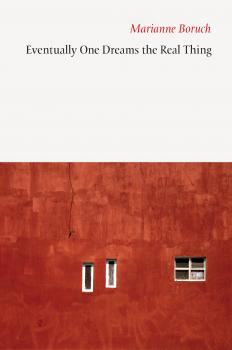ТОП просматриваемых книг сайта:
Marianne Boruch
Список книг автора Marianne BoruchАннотация
The hook to this book is full-flower in a quote from Marianne Boruch, describing her time in the cadaver lab: “The cadaver nevertheless pushed me aside to speak for herself, to give her take on dissection and her long life on the planet before she generously gave her body that those doctors-to-be might learn crucial secrets.”…and another quote: “Some books begin as a dare to the self.” Boruch is the most recent winner of the Kingsley Tufts Poetry Award
Аннотация
writes a column in American Poetry Review according to Boruch, this was the strangest book she’s ever written, that it “came to me in a trance, almost perfectly formed, and I don’t remember writing it.” widely respected for weird intelligence mystical book about living and dying, with lots of air creatures and water creatures Boruch’s work appears with regularity in The New Yorker
Аннотация
What to do with the everything crossing one’s path? Everything for and against, upside down and inside out, grief first then its dogged shadow life, which could be joy. In <i>The Anti-Grief</i>, Marianne Boruch challenges our conceptions of memory, age, and time, revealing the many layers of perception and awareness. A book of meditations, these poems venture out into the world, jump their synapse, tie and untie knots, and misbehave. From Emily Dickinson’s chamber pot to meat-eating plants, from an angry octopus to crowds of salmon swimming upstream, Boruch’s imagery blurs the line between natural and supernatural. And of course there is grief—working through grief, getting over grief, living with grief, and in these magnificent poems, anti-grief.
Аннотация
A starred review in Library Journal says this about Eventually One Dreams the Real Thing: “Only a poet as accomplished as Boruch could make such beautiful verse while leading us through the everyday, of life’s subtle, steady shiftings (‘the bird’s hunger, seeking shape’). If the opening image of a pool filled with cruelly dredged up roses bespeaks quiet assent (‘I stood before them the way an animal/ accepts sun’), the next poem turns immediately to progress (and hence progression) as a modern invention beyond the heaven-and-hell alternatives; finally, the poet concedes, ‘I lose track of my transitions.’ In fact, transition defines us. Here, a static painting gives way to ‘between and among,’ a simple typeface never yields a perfect copy, and even in a medieval score, two exquisite quavers are connected by a slur. Highly recommended.” "Marianne Boruch's work has the wonderful, commanding power of true attention: She sees and considers with intensity."—The Washington Post"Boruch refuses to see more than there is in things—but her patience, her willingness to wait for the film of familiarity to slip, allows her to see what is there with a jeweler's sense of facet and flaw."—PoetryIn her tenth volume of poetry, Marianne Boruch displays a historical omnipresence, as she converses with Dickinson, envisions Turner painting, and empathizes with Arthur Conan Doyle. She looks unabashedly at the brutality of recent history, from drone warfare to the disaster in New Orleans from Hurricane Katrina. Poems that turn her gaze towards childhood, nature, animals, and her own poetics are patches of light in the collection's chiaroscuro. From «Before and Every After»:Eventually one dreams the real thing.The cave as it was, what we paid to straddlea skinny box-turned-seat down the middle, narrow boatmade special for the state park, the wet, the trickypassing into rock and underground river.A single row of strangers faced front, each of usbehind another closeas dominoes to fall or we were angels lined uppolitely, pre-flight…Marianne Boruch is the author of ten collections of poetry. She is the 2013 recipient of the Kingsley Tufts Poetry Award, and has taught at Purdue University since the inception of their MFA program. She lives in West Lafayette, Indiana.
Аннотация
<P>In her wry and riveting new collection, Marianne Boruch discovers things often taken for granted and holds them up to deceptively casual light, questioning them both mercilessly and mercifully. Employing a masterly range of tone and form, Boruch makes a sometimes strange but always revealing investigation of world and self, history and memory, resistance and release. Here a woman levitates behind a door as her daughter badly bangs out Mozart. Here God is caught before the moment of creation, before knowledge, before «the invention/ of the question too, the way all/ at heart are rhetorical, each leaf/ suddenly wedded to its shade.» It's here raucous boys on their bikes are told—through telepathy—don't go to this war. Here, that a Dutch still life is returned to the small chaos of its making. And Eve, in «stained fascination,» stares down the snake of the lost garden. The lyric impulse in these deeply interior poems stops time, even as the world, indifferent to its mystery, keeps happening.</P><P>Praise for Marianne Boruch:<BR>"Her poems are complex rather than simple rooms &#8230; they bring the world's strangeness, and their own, home to whatever reader is open to old mysteries, both in dreams and in the waking life they illuminate."—Philip Booth, The Georgia Review</P><P>"Marianne Boruch's (work) has the wonderful, commanding power of true attention: She sees and considers with intensity. Her poems often give fresh examples of how rare and thrilling it can be to notice."—Robert Pinsky, Book World, The Washington Post</P><P>"Every detail of image and syntax shines with multiplicity."—Donald Revell, The Ohio Review</P>





